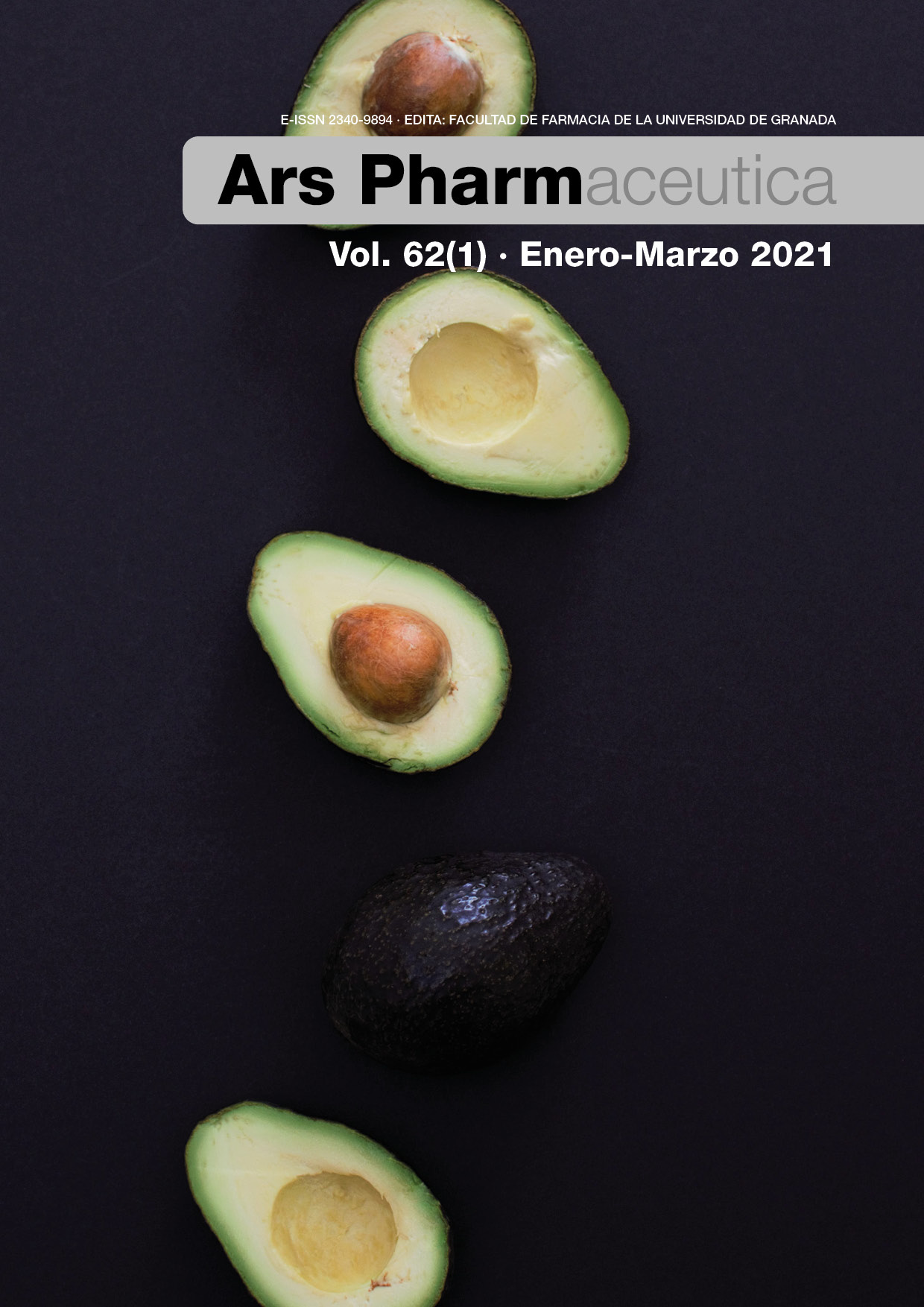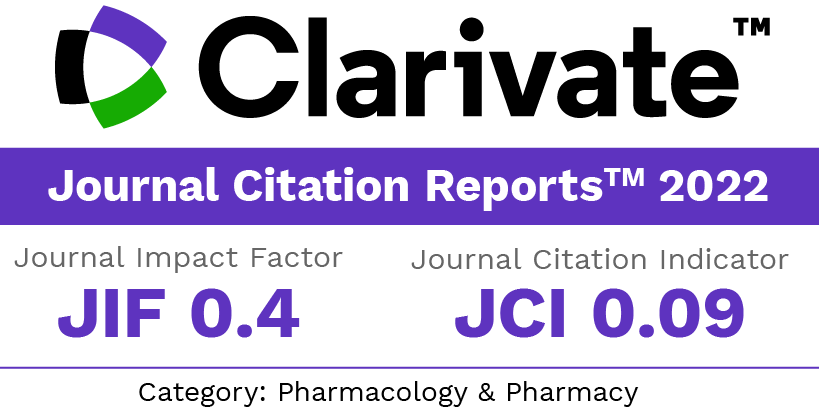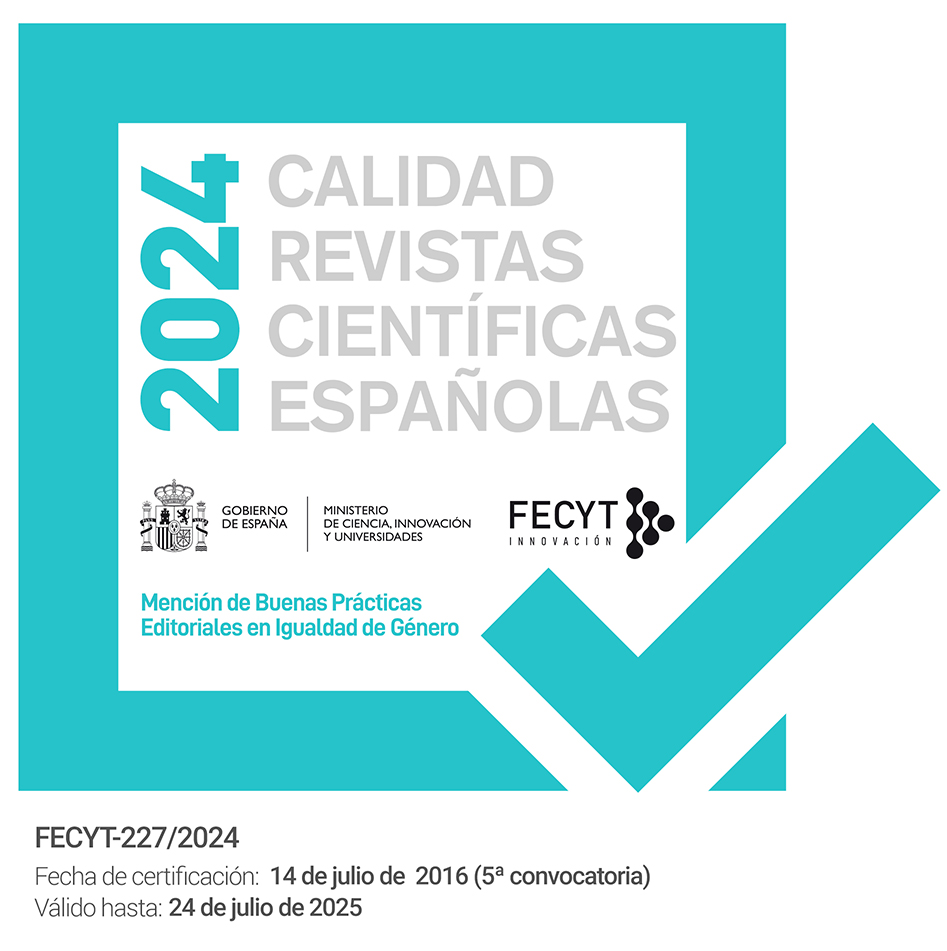Una formulación tradicional de poli-hierbas mejora la función cognitiva en ratones C57BL / 6
Palabras clave:
Unani, Morris laberinto de agua, Formulación polivérica, Cognición, Memoria, Aprendizaje.Resumen
Introducción: Khamira Gawzaban Ambari Jadwar Ood Saleeb Wala (KGAJOS) es una formulación de Unani compuesto de poliherbal descrito como tónico para el cerebro, corazón, hígado y estómago. Este estudio se realizó para evaluar la eficacia preclínica de KGAJOS en el aprendizaje y la memoria.
Método: Se evaluó la actividad de mejora de la función cognitiva de KGAJOS utilizando la prueba de laberinto de agua de Morris en ratones C57BL / 6. Se utilizó piracetam como control positivo. Se utilizó el software de seguimiento de video Anymaze para rastrear la ruta.
Resultados: Durante la prueba de la sonda, se observó un aumento significativo en el tiempo empleado en el cuadrante de la plataforma a 1000 y 1500 mg / kg de peso corporal de KGAJOS (p <0,01 y 0,001, respectivamente) y en el grupo de piracetam (p <0,01) en comparación con el control. La latencia para alcanzar el cuadrante de la plataforma (latencia de escape) se redujo significativamente (p <0,001) en el grupo de piracetam y KGAJOS a 1000 y 1500 mg / kg de peso corporal en comparación con el control.
Conclusiones: El experimento del laberinto de agua de Morris reveló una mejora en la función de aprendizaje y memoria con 1000 y 1500 mg / kg de peso corporal de KGAJOS, mientras que 500 mg / kg de peso corporal no fue efectivo. La eficacia observada de KGAJOS confirmó las afirmaciones tradicionales y el uso de esta formulación en condiciones asociadas con la cognición y la memoria.
Descargas
Citas
Ahmad S, Rehman S, Ahmad AM, Siddiqui KM, Shaukat S, Khan MS, et al. Khamiras, a natural cardiac tonic: An overview. J Pharm Bioallied Sci. 2010;2(2):93-99.
National Formulary of Unani Medicine-Part V. New Delhi: Department of Ayurveda, Yoga & Naturopathy, Unani, Siddha and Homoeopathy (AYUSH), Ministry of Health & Family Welfare, Government of India, 2008.
Ishaq H. Anxiolytic effect of herbal medicine, Khamira Gaozaban Ambri Jadwar Ood Salib Wala (KGJ) in experimental rat models. Pak J Pharm Sci. 2014;27(2):289-294.
Ishaq H MR, Javed I, Tariq T, Mahmood I. Antidepressant Activity of the Herbal Extract, Khamira Gaozaban Ambri Jadwar Ood Salib Wala. International Journal of Pharmacy. 2013;3(3):450-456.
Lee YW. Silk Reeling and Testing Manual. FAO AGRICULTURAL SERVICES BULLETIN No. 136. Food and Agriculture Organization of the United Nations Rome (ISBN 92-5-104293-4). 1999.
Kang YK, Lee BY, Bucci LR, Stohs SJ. Effect of a Fibroin Enzymatic Hydrolysate on Memory Improvement: A Placebo-Controlled, Double-Blind Study. Nutrients. 2018;10(2):233.
Soodi M, Naghdi N, Hajimehdipoor H, Choopani S, Sahraei E. Memory-improving activity of Melissa officinalis extract in naïve and scopolamine-treated rats. Res Pharm Sci. 2014;9(2):107-14.
Ozarowski M, Mikolajczak PL, Piasecka A, Kachlicki P, Kujawski R, Bogacz A, et al. Influence of the Melissa officinalis Leaf Extract on Long-Term Memory in Scopolamine Animal Model with Assessment of Mechanism of Action. Evid Based Complement Alternat Med. 2016;2016:9729818.
Kennedy DO, Scholey AB, Tildesley NT, Perry EK, Wesnes KA. Modulation of mood and cognitive performance following acute administration of Melissa officinalis (lemon balm). Pharmacol Biochem Behav. 2002;72(4):953-64.
Ghahremanitamadon F, Shahidi S, Zargooshnia S, Nikkhah A, Ranjbar A, Soleimani Asl S. Protective effects of Borago officinalis extract on amyloid β-peptide(25-35)-induced memory impairment in male rats: a behavioral study. Biomed Res Int. 2014;2014:798535.
Zargooshnia S, Shahidi S, Ghahremanitamadon F, Nikkhah A, Mehdizadeh M, Soleimani Asl S. The protective effect of Borago Officinalis extract on amyloid β (25-35)-induced long term potentiation dis¬ruption in the dentate gyrus of male rats. Metab Brain Dis. 2015;30(1):151-6. doi: 10.1007/s11011-014-9594-4.Erratum in: Metab Brain Dis. 2015;30(1):157-8.
Shawwal M, Badruddeen, Khushtar M, Rahman MA. Protective effect of hydro-alcoholic extract of Salvia haematodes Wall root on cognitive functions in scopolamine-induced amnesia in rats. J Tradit Complement Med. 2017;7(4):471-475.
Mani V, Parle M, Ramasamy K, Abdul Majeed AB. Reversal of memory deficits by Coriandrum sativum leaves in mice. J Sci Food Agric. 2011;91(1):186-92.
Mima Y, Izumo N, Chen JR, Yang SC, Furukawa M, Watanabe Y. Effects of Coriandrum sativum Seed Extract on Aging-Induced Memory Impairment in Samp8 Mice. Nutrients. 2020;12(2):455.
Ahmad H, Ahmad S, Khan E, Shahzad A, Ali M, Tahir MN, Shaheen F, Ahmad M. Isolation, crystal structure determination and cholinesterase inhibitory potential of isotalatizidine hydrate from Delphinium denudatum. Pharm Biol. 2017;55(1):680-686.
Ahmad H, Ahmad S, Ali M, Latif A, Shah SAA, Naz H, Ur Rahman N, Shaheen F, Wadood A, Khan HU, Ahmad M. Norditerpenoid alkaloids of Delphinium denudatum as cholinesterase inhibitors. Bioorg Chem. 2018 Aug;78:427-435.
Zaidi SMA, Pathan SA, Singh S, Ahmad FJ, Jamil SS, Khar RK. Effect of repeated administration of Paeonia emodi wall root extract in experimental models of epilepsy and behavior. Journal of Pharma¬cology and Toxicology 2012;7:64-77.
Compendium of Committee for the Purpose of Control and Supervision of Experiments on Animals (CPCSEA). Ministry of Environment, Forest & Climate Change, Government of India, New Delhi. 2018.
Reagan-Shaw S, Nihal M, Ahmad N. Dose translation from animal to human studies revisited. FASEB J. 2008;22(3):659-661.
Vasudevan M, Parle M. Pharmacological actions of Thespesia populnea relevant to Alzheimer’s disease. Phytomedicine. 2006;13(9-10):677-687.
Bromley-Brits K, Deng Y, Song W. Morris water maze test for learning and memory deficits in Alzheimer’s disease model mice. J Vis Exp. 2011;(53):2920.
Nunez J. Morris Water Maze Experiment. J Vis Exp. 2008;(19):897.
Barnhart CD, Yang D, Lein PJ. Using the Morris Water Maze to Assess Spatial Learning and Memory in Weanling Mice. PLoS ONE 2015;10(4):e0124521.
D’Hooge R, De Deyn PP. Applications of the Morris water maze in the study of learning and memory. Brain Res Brain Res Rev. 2001;36(1):60–90.
Hoscher C. Stress impairs performance in spatial water maze learning tasks. Behav Brain Res.1999;100:225-35.
Morris RGM. Spatial localization does not depend on the presence of local cues. Learn Motiv. 1981;12(2):239-60.
Tucker LB, Velosky AG, McCabe JT. Applications of the Morris water maze in translational traumatic brain injury research. Neurosci Biobehav Rev. 2018;88:187-200.
Vorhees CV, Williams MT. Morris water maze: procedures for assessing spatial and related forms of learning and memory. Nat Protoc. 2006;1(2):848–858.
Brandeis R, Brandys Y, Yehuda S. The use of the Morris Water Maze in the study of memory and learning. Int J Neurosci. 1989;48(1-2):29–69.
Harris RA, Lone A, Lim H, Martinez F, Frame AK, Scholl TJ, Cumming RC. Aerobic glycolysis is required for spatial memory acquisition but not memory retrieval in mice. eNeuro 2019;6(1).
Frame AK, Lone A, Harris RA, Cumming RC. Simple Protocol for Distinguishing Drug-induced Effects on Spatial Memory Acquisition, Consolidation and Retrieval in Mice Using the Morris Water Maze. Bio-protocol 2019;9(18):e3376.
Descargas
Publicado
Cómo citar
Número
Sección
Licencia
Derechos de autor 2020 Gulam Mohammed Husain, Mohd Nadeem, Ghazala Javed, Mohd Urooj, Mahe Alam, Muskula Anudeep Reddy, Munawwar Husain Kazmi

Esta obra está bajo una licencia internacional Creative Commons Atribución-NoComercial-CompartirIgual 4.0.
Los artículos que se publican en esta revista están sujetos a los siguientes términos en relación a los derechos patrimoniales o de explotación:
- Los autores/as conservarán sus derechos de autor y garantizarán a la revista el derecho de primera publicación de su obra, la cual se distribuirá con una licencia Creative Commons BY-NC-SA 4.0 que permite a terceros reutilizar la obra siempre que se indique su autor, se cite la fuente original y no se haga un uso comercial de la misma.
- Los autores/as podrán adoptar otros acuerdos de licencia no exclusiva de distribución de la versión de la obra publicada (p. ej.: depositarla en un archivo telemático institucional o publicarla en un volumen monográfico) siempre que se indique la fuente original de su publicación.
- Se permite y recomienda a los autores/as difundir su obra a través de Internet (p. ej.: en repositorios institucionales o en su página web) antes y durante el proceso de envío, lo cual puede producir intercambios interesantes y aumentar las citas de la obra publicada. (Véase El efecto del acceso abierto).




















